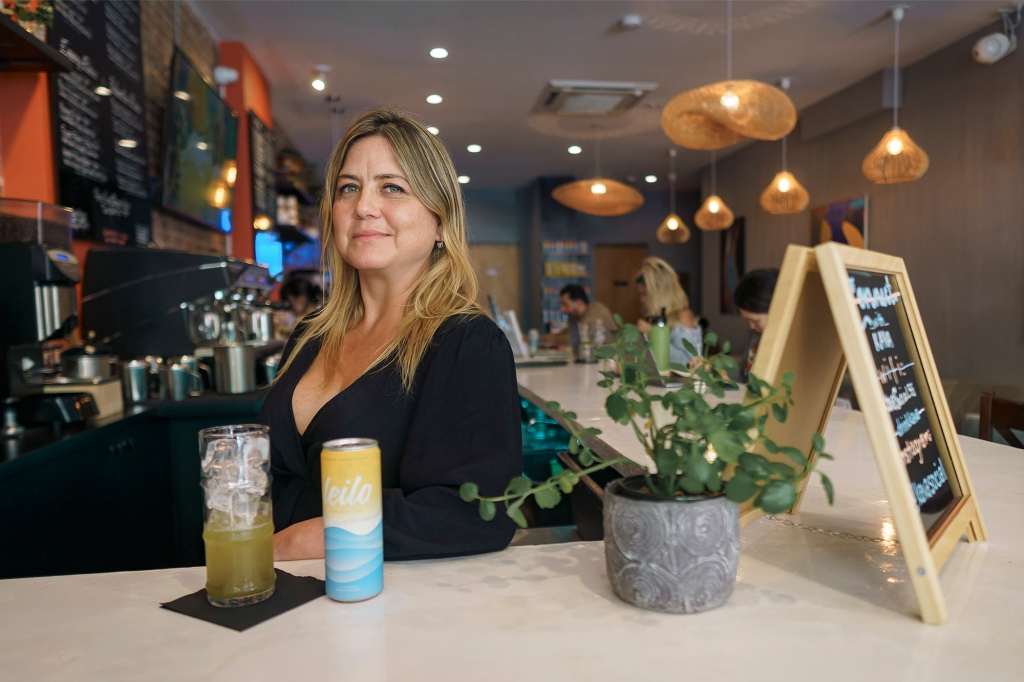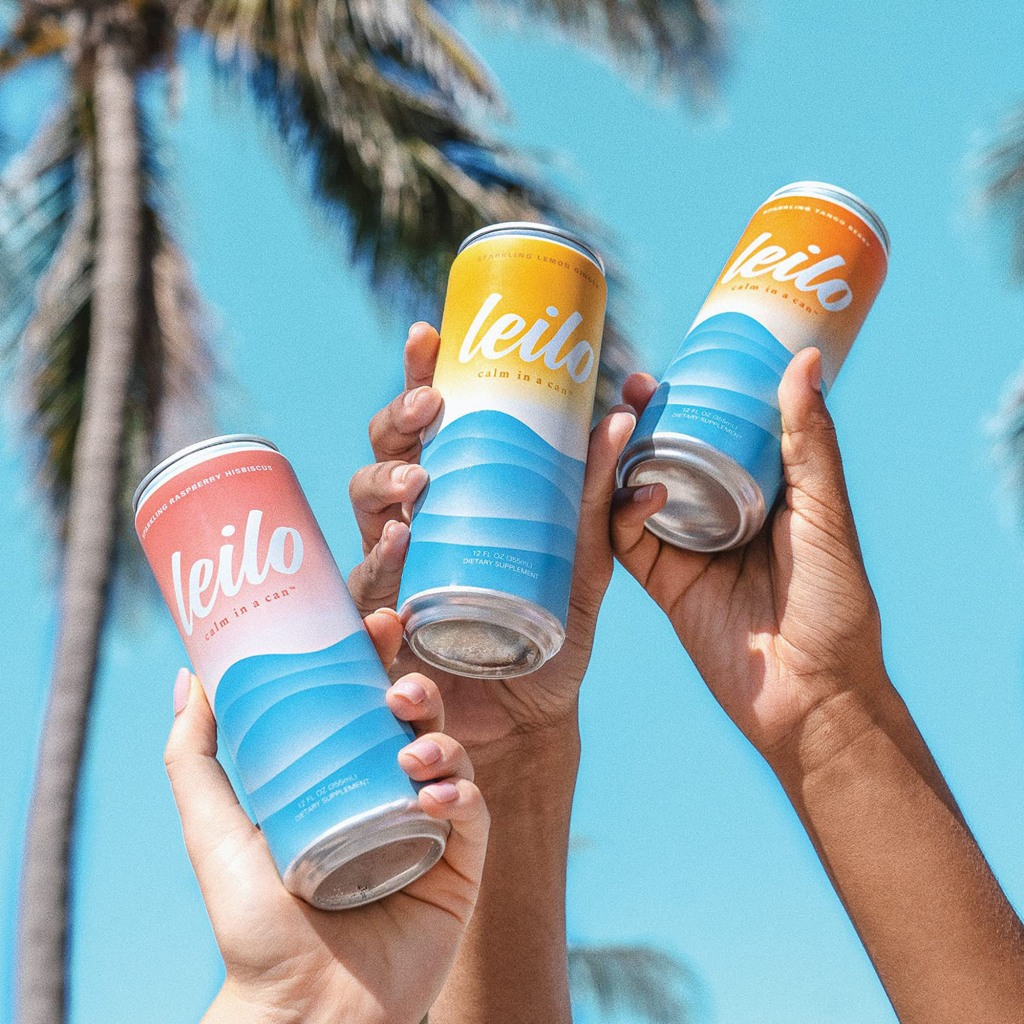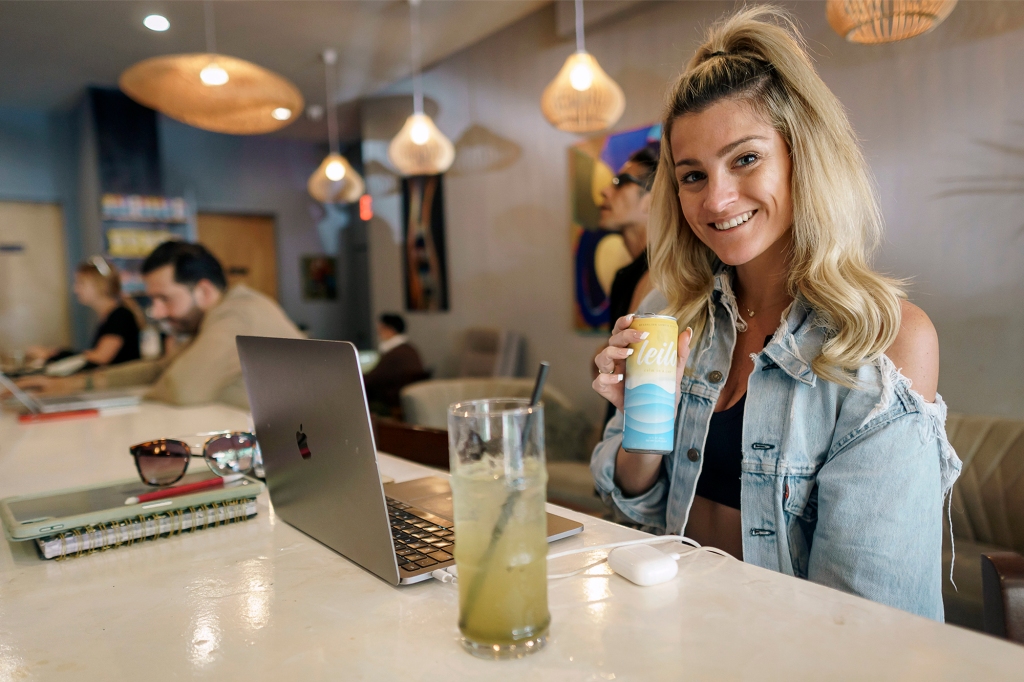Kava drinks, like Leilo, are the hot new sober beverages
Kat McDonough, 27, had a fake ID from the time she was 14 and making the rounds of the bars in her hometown of Massapequa, NY, where she never turned down a shot.
“I love being out and I love being social,” the petite blonde told The Post.
After years of heavy drinking, McDonough saw an opportunity during the pandemic, and decided to sober up.
Still, she worried about her social calendar filling up again, and how she’d maintain. Then she stumbled upon her first kava bar, Kava Social, near her Brooklyn apartment. She stopped in for a cocktail, and was hooked.
Credited variously as a pain reliever and muscle relaxant, an antidepressant, an insomnia reliever and a mental cognition booster, all while bestowing feelings of euphoria and relaxation, kava, a Pacific Islands root traditionally consumed as a tea, is having a moment.
Kava Social opened in January 2020, after owner Alex Sienkiewicz fell in love with the ancient herbal remedy. After noticing that her “productivity levels went through the roof,” a curious Sienkiewicz started tinkering with kava cocktails.
Bars like Kava Social and Ka-Vá Kava Bar in Williamsburg, and Brooklyn Kava and Misfit Kava Bar in Bushwick, have been a hit with millennial and Gen Z drinkers, some of the most health conscious in history. With more and more of them sober-curious or exploring sobriety, there’s a growing thirst for nonalcoholic drinks.
Now, the humble root has gone viral, with over 100 million videos on TikTok and a surge in Kava-related commerce, with everything from infused seltzers to mints hitting the market.

“It takes the edge off,” Kava Social owner Sienkiewicz told The Post, describing the “soft feel” of kava. But the party doesn’t stop there—kava is calming, but it’s not a sedative, which is why many people have turned to the natural alternative as their social lubricant of choice.
“It’s pretty impossible to feel anxious on kava,” said plant-based medical researcher Chris Kilham, noting that kavalactones, the active compounds in kava, work their magic in the amygdala, the part of the brain where anxiety is concentrated.
Sol Broady, founder of Leilo, the first brand of fruity canned kava seltzers, thinks it’s more than just a trend. “People are always looking for a remedy to the stresses and problems of the day,” he said, but noted that many Americans have become more conscious about their physical and mental health.

Hilary Sheinbaum, author of “The Dry Challenge,” explained to The Post that younger drinkers “are questioning what it is that they are consuming and putting into their body,” and noted the incredible access to information that these generations have always had.
“I think that goes hand in hand — now we have all these alternatives that help you feel relaxed, without the damaging effects,” she said.

Kava isn’t immune from scrutiny. Reports have linked the herbal remedy with severe liver problems in 25 cases across the US and Europe — enough to lead countries like Canada and the United Kingdom to implement regulatory controls.
The people who study it — and consume it — are quick to defend the time-tested herbal remedy.
“Kava is extensively well-studied, and has been consumed in the Pacific Islands for
at least a thousand years. The science is deep, vast and wide,” Kilham said.
“Nobody’s mad on kava,” Sienkiewicz said.
Read the full article Here


